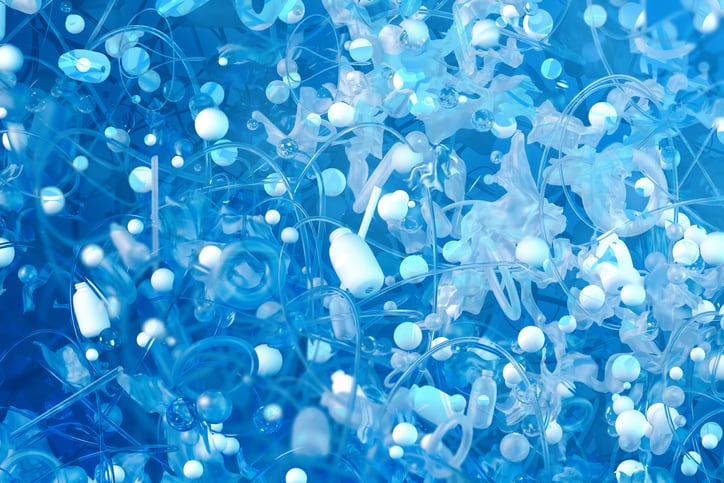The investment and technology transfer from Repsol will help the biotechnology company Darwin scale up its research, with the goal of commercializing a product that addresses plastic waste in agriculture, waste treatment and potentially other sectors, CEO Manuel Porcar told NutraIngredients.
The collaboration ultimately aims to tackle the growing environmental and health risks posed by microplastics.
“Plastics in agricultural soil and other environments need treatment, and there’s a growing need to address this issue, especially as microplastics are now being found in the human brain,” Porcar said.
New technology
The technology uses microorganisms to biodegrade plastics, specifically polyolefins like polyethylene and polypropylene, to offer a potential solution for treating plastic waste in water and soil.
Porcar explained that Darwin’s role is to further develop this technology and conduct field experiments using microbial consortia to break down plastics in real-world environments, noting that the company has already shown promising lab results.
“The technology is not yet patented, but it’s under industrial secret, and we’ve spent years selecting microbial consortia that biodegrade plastic efficiently,” he said.
“The microorganisms use plastic as a carbon source, turning it into bacterial biomass and producing water and CO2. We’ve carried out microcosm experiments with non-sterile conditions and seen that microorganisms stabilize in the wild, biodegrading plastics.”
He added that they will soon be conducting final field experiments to scale up the microorganisms and bring a product to market for treating water waste and agricultural soil.
Now, Darwin is focusing on scaling up, which involves producing large amounts of microorganisms to test their performance in fermenters. Next, it will develop the combinations of microorganisms, preparing for commercialization in two to three years.
A ‘one health’ incentive
The initiative is very linked to the One Health concept, Porcar explained, which originally stemmed from finding links between antimicrobial resistance and antibiotics used in animal farming, as well as reports that up to three-quarters of human infections are estimated to originate from zoonoses—diseases which can be transmitted to humans from animals.
Now, the One Health concept goes beyond antimicrobial resistance and zoonoses and incorporates a holistic outlook on health, with emerging solutions looking to support full ecosystems.
Soil microbiome has been found to impact human health indirectly through its role in mitigating climate change and supporting biodiversity, and there are many links between anthropogenic activities, microbiomes and threats to human health.
For instance, microplastics provide habitats for harmful bacteria with antimicrobial resistance, and exposure to Bisphenol A has been shown to impact the gut microbiota and is associated with a higher body mass index and risk of obesity.
As Porcar explained, plastics enter the environment and eventually reach the human body, and the most effective intervention is to disrupt the flow at ground level.
“Plastic is produced, ends up in rivers, oceans, soils, and then in plants... and finally in humans,” he said “To disrupt this process, action is needed at some point—the most logical place to intervene is agricultural soil.”
He explained that when humans consume microplastic-containing food or water, the plastics quickly enter the bloodstream and therefore any probiotic directly ingested that could break down plastic must work fast.
In contrast, microorganisms in the field have time on their side and therefore have the opportunity to break down plastic over several months.
As Daniel Ramón Calvo, marketing and strategy director at Darwin explained, the company is aiming to focus on addressing problems holistically, rather than just offering a quick fix.
“When it comes to functional supplements, the solution may not always be at the end of the chain,” he said.
“Sometimes, it’s crucial to step back and disrupt the problem earlier in the process, especially in areas like agriculture.”
He expects to see the same approach increasingly adopted by major companies in the industry, especially in fields like biotechnology.
Industry impact
As evidence continues to mount on the health impacts of microplastics, Darwin anticipates that this kind of technology will play a significant role in shaping the decisions of nutrition supplement buyers, Calvo explained.
“Consumers are becoming more aware and demanding transparency, and therefore trust is everything,” he said. “This technology offers a way to provide that trust through real data and accountability.
“We’re also seeing microplastic contamination emerging as one of the next big concerns in the health and wellness space, and it’s only a matter of time before regulation catches up. Those who lead in addressing this issue now will be ahead of the curve when that happens.”
He continued that this initiative shows potential for brands and formulators, noting that there a multiple benefits to the breakdown of microplastics in the soil from a business perspective.
“First and foremost, it leads to cleaner, purer raw materials - something every health-conscious consumer cares about,” Calvo said. “But it also goes beyond just the product itself, and this effort reinforces a brand’s sustainability narrative, aligning actions with values and creating a more compelling, authentic story to tell.
“In a market where trust is everything, taking real steps to reduce microplastic contamination can set a brand apart and deepen its connection with conscious consumers.”


